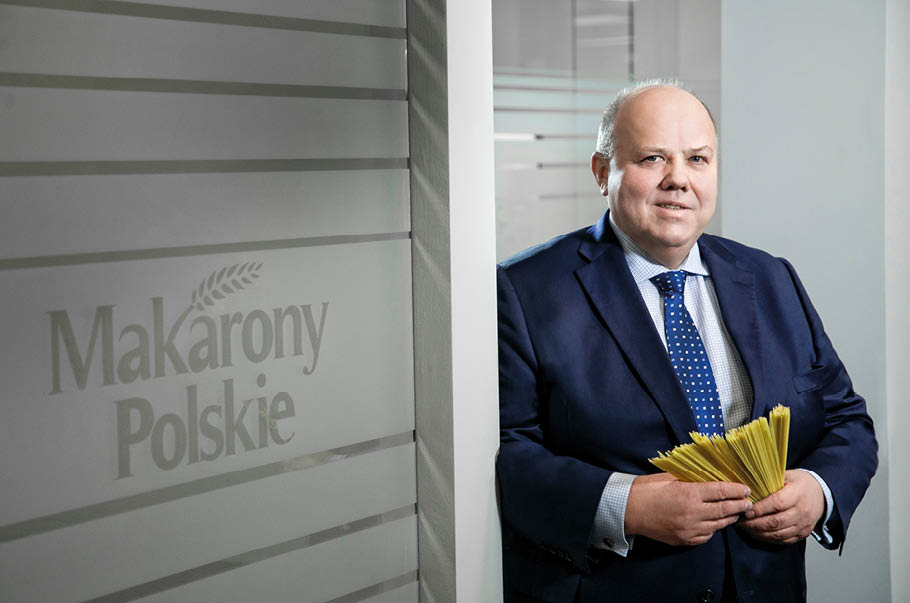Last year, exports of pasta from Poland reached 19 thousand tons, at a production exceeding 150 thousand tons – so approx. 15 per cent of the production was exported. In 2017, the Makarony Polskie Group exported approx. 4 thousand tons of pasta, accounting for approx. 6-7 per cent of our revenues. Export is among the most profitable area of our business.
What countries are the main recipients of your products?
Our largest customer is Ukraine, having increased the imports of pasta from Poland by nearly 50 per cent last year. In 2017, our exports to Ukraine reached the value of PLN 4 million, and our pasta under the Sorenti brand can be found on the shelves of leading Ukrainian distributors. Ukraine and Egypt are our major markets. Another very interesting direction of business is Scandinavia. Such products as animal-shaped pasta for children or bio products sell there. Abroad, one has to stand out particularly and offer what the competitors do not have. We are also present on the Chinese market with our products. We introduced the Sorenti pasta to a large trade chain six years ago. This market is somewhat problematic because few companies are able to satisfy the substantial needs of a Chinese distributors.
Does the company plan to enter new foreign markets?
We are considering cooperation with the Middle East and development of operations in countries bordering Poland. Pasta is a difficult product for export sales – it is lightweight but with a considerable volume, which makes it hard in logistics. It is not economically viable to sell in small batches – the quantity has to be counted in containers, otherwise no profit will be achieved. As I have already mentioned, pasta does not like being transported over long distances, so it seems valid to intensify cooperation with our closest neighbours. It is better to perform deeper penetration of a market on which you have already managed to succeed than to try and build your presence on a completely new one. A local business partner is the key to success. We have them in Ukraine and Egypt, and we are looking for more.
How do you search for new customers on foreign markets?
It is best to acquire new contacts on foreign markets during foreign trade fairs. We often exhibit on national stands organized by the Ministry of Agriculture and Rural Development or the National Support Centre for Agriculture. We have been in Dubai, we will also be in Singapore, Shanghai, and at the SIAL fair in Paris. We participate in many events of such a kind. Finding new customers is always a challenge. Today, there is no such thing as a simple sale, because a fierce price war is taking place on the market. Many foreign producers offer prices so low that they prevent us from entering e.g. African markets. There are two types of pasta consumers: those who look for a good product and those who want to satisfy their hunger at a low cost. Our products belong to the premium segment.
Thank you












